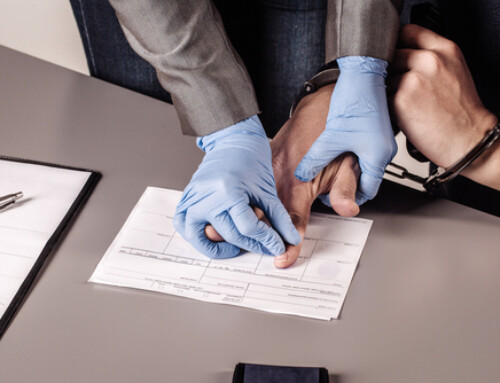It’s been said that “possession is nine-tenths of the law.” Most people have heard that adage at one time or another. Practically speaking possession is easily understood. However, possession, in the legal sense, is not easily defined. The law in South Carolina recognizes actual possession and constructive possession. Understanding these concepts is critical to defending against possession of a controlled substance charge given the potential incarceration you might face if convicted. If you have been charged with a drug crime in the North Charleston, SC area, you need Rad S. Deaton, Esq. on your side. Attorney Deaton is a tough, determined, and aggressive narcotics defense attorney who will fight for your rights.
Possession of a Controlled Substance in South Carolina
Possession of a controlled substance is a crime in South Carolina. Most would define “possession” as actual possession. An example of actual possession would be having your car keys in your hand. You are in actual possession because you know they are in your hand and you intend to have them in your hand. Simple enough. Previously in South Carolina, actual possession of an item was considered “strong evidence” that the person intended to possess it. South Carolina courts have eliminated the “strong evidence” component to actual possession.
Constructive Possession in South Carolina
Possession may be proved by another theory: constructive possession. Constructive possession is the ability and intent to exercise “dominion and control” over the item or the “premises” on which the item was found and knowing the contraband was there. However, and this point is critical to the analysis, “mere presence” of a person near contraband is insufficient to prove a person constructively possessed the item.
Proof of constructive possession may be made by both direct and circumstantial evidence. The proof of knowledge is seldom obtained through direct evidence. Most often in narcotics possession cases, knowledge must be proved circumstantially. Circumstantial evidence can be the demeanor of the person under investigation, such as flight from the scene, extremely nervous behavior, things the person says, or other behavior may be evidence that the person has constructive possession of the controlled substance. Thus, possession may be “inferred from the circumstances and imputed” to the person who has control over the area. The inference is that person knew of the presence of the contraband and intended to exercise “power” over it. Notwithstanding, merely suspicious behavior is not enough to connect a person to the contraband.
What if two people are riding in a car that is stopped by police then searched and a controlled substance is found on the floor behind the back seat? One person is in the driver’s seat and the other in the front passenger seat. Are both the driver and passenger guilty of possession of the narcotics? Although possession may be shared, without more evidence, no. Both the passenger and the driver would be merely present in the same vicinity of a controlled substance.
The analysis changes when additional facts are added. In the case of State v. Brown, there were additional facts such as the police stopping the car on a lonely road at 1 a.m., the driver, Wolfe, was very nervous and had a large bankroll of money in his pocket, and there was a smell of freshly burned marijuana in the car. Brown, the passenger of the car told Wolfe to be quiet when Wolfe started talking to police. Additionally, Brown appeared nervous and had no identification on him. The controlled substance found was 8 pounds of marijuana in an opaque bag found behind the back seat.
Brown was convicted after trial and appealed his conviction. The South Carolina Supreme Court overturned his conviction. The court ruled that there was insufficient evidence for the jury to infer that Brown, the passenger in the car, had the intent and ability to exercise dominion and control over the marijuana. The government failed to prove that Brown had any connection to the car or the driver or that he knew of the contents of the bag. In addition, there was no marijuana residue in the passenger compartment of the car, or any other evidence that could have circumstantially proved that Brown knew about the marijuana and intended to exercise dominion and control over it.
You Need an Aggressive Defense If You Have Been Charged With Narcotics Possession in North Charleston
Rad S. Deaton, Esq. is an aggressive drug charge defense attorney in North Charleston. Attorney Deaton will vigorously fight to defend your case if you have been charged with possession of a controlled substance. Attorney Deaton possesses the skill, experience, and determination to provide you with the defense you deserve. Call Rad S. Deaton of the Deaton Law Firm, LLC today at 843-225-5723, or 843-557-6852 after hours, to schedule a free, no-obligation consultation.






